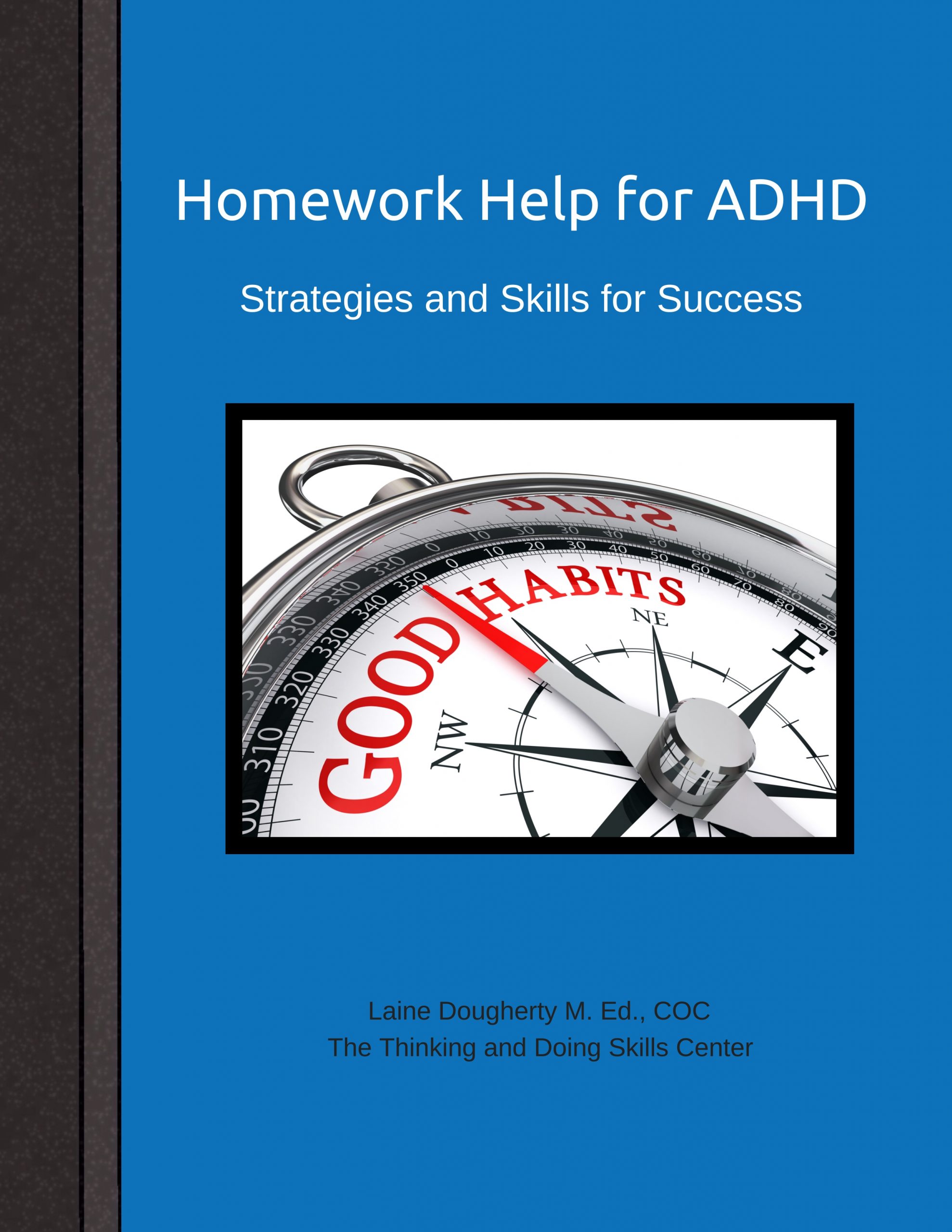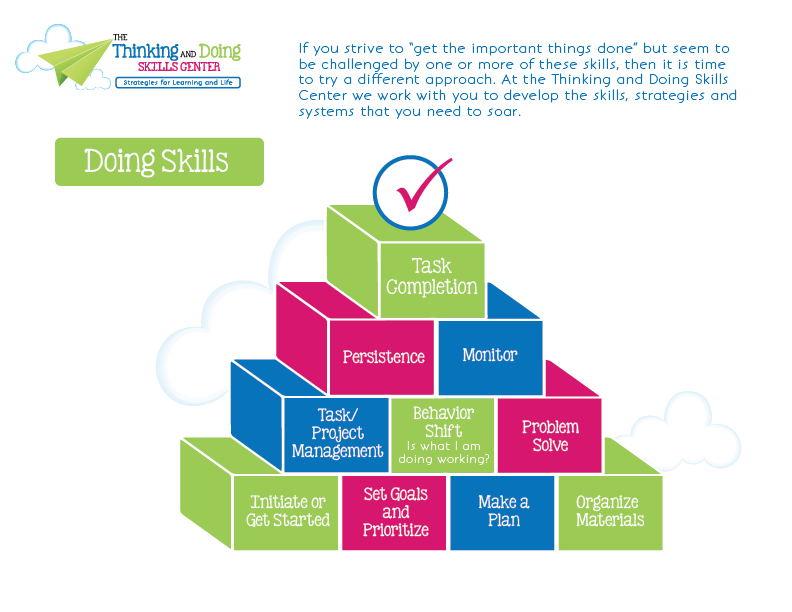 Summer’s here and the learning never stops! Sure no one wants to even think about school during July and August. I understand that. But if your son or daughter struggles in school with organization, planning or focusing long enough to get through homework, then you might want to build some of their executive function skills this summer while having some fun. Below are three executive function skills with some activities you can do to strengthen them. Once you start to see your child/teen improving you’ll want to be sure they “transfer” their learning to school and their life by asking questions such as: “How might a stronger memory help in school?” or “What a fun day. Your plan was organized and we had everything we needed. Can you think of any other ways that great planning might be helpful?” Don’t forget to mention whenever you use planning, or working memory strategies so that your son or daughter sees that those skills are used every day.
Summer’s here and the learning never stops! Sure no one wants to even think about school during July and August. I understand that. But if your son or daughter struggles in school with organization, planning or focusing long enough to get through homework, then you might want to build some of their executive function skills this summer while having some fun. Below are three executive function skills with some activities you can do to strengthen them. Once you start to see your child/teen improving you’ll want to be sure they “transfer” their learning to school and their life by asking questions such as: “How might a stronger memory help in school?” or “What a fun day. Your plan was organized and we had everything we needed. Can you think of any other ways that great planning might be helpful?” Don’t forget to mention whenever you use planning, or working memory strategies so that your son or daughter sees that those skills are used every day.
According to Bloom’s new hierarchy of skills the first step is the ability to remember. Working memory has been defined as being able to hold onto information long enough to use and/or manipulate it. For example, understanding the rules of a new game and being able to play it while keeping track of other players’ moves uses the working memory.
Here are some ideas to increase working memory skills during the summer:
- Write it down! Use a planner, smartphone app (Google Calendar, Color note, Evernote, Remember the Milk, Hiveminder, etc.), or notepad to keep track of events, vacation, etc. so you don’t overburden your working memory.
- Practice setting reminders in your phone for fun things because the summer is less structured.
- Play the “I went to Grandma’s house and I brought my….” game that uses all the letters of the alphabet. Each person must repeat what was said before. I went to Grandma’s house and I brought my apple, blanket, cow, daffodil, etc.
- Memorize license plates and repeat them backwards
- Hold a family competition to name the 50 states, presidents or capitals.
- Play card games or Memory type game
- Bake cookies and keep two ingredients in your memory before looking again at the recipe.
 Planning skills include the ability to organize your thoughts in a logical manner to accomplish a goal. It requires sequencing and figuring out the individual steps needed to get to completion. Students that struggle with story or essay writing, long term projects or even getting all their homework done may have a weak “planning” skill.
Planning skills include the ability to organize your thoughts in a logical manner to accomplish a goal. It requires sequencing and figuring out the individual steps needed to get to completion. Students that struggle with story or essay writing, long term projects or even getting all their homework done may have a weak “planning” skill.
Here are some ideas to build “planning” during the summer:
- As mentioned above, have your child/teen plan out their summer reading and math packet time on a calendar.
- Plan a day trip and include all necessary details. Walk through it to check that everything important is included. Don’t forget museums, historic places, and parks.
- Cook like they do on TV. Get out the ingredients and measure them all out first before beginning. Pick a new recipe and plan the shopping list and determine the cost before going.
- Geocaching – pick where you want to go, what you need to bring with you, etc.
- Pack for a day at the beach or camp – check before leaving that everything is included. Start with the end in mind.
- Puzzles and brain teasers are fun. For the young ones “find the differences” activities involve creating a plan of where to look in an organized manner that you’ll need to show them. How will they put together a puzzle that doesn’t have any straight edges?
- Discuss their video game strategies with them. Have them explain their approach. Better yet, play with them and discuss as you go.
- Plan a scavenger hunt
- Build a bird house or race car (Lowe’s sells kits for kids)
Time management starts by developing time awareness. Here are a few suggestions for activities that will get the family going and develop an understanding of time:
- Time activities like emptying the dishwasher, setting the table, feeding the dog, reading 10 pages, etc. after your child/teen has estimated how long it will take.
- Create an obstacle course and post the times to beat (give younger kids a few minute cushion).
- Hold the family “Olympic games” and have everyone compete against themselves over the course of a few weeks.
- How many baskets/goals can they get in one minute? Jump rope for one minute.
- Start a monopoly game or “Life” and play for an hour each night until someone wins.
Have some fun and please share your activities on our FaceBook page. Check out our upcoming classes here.







 hoices….choices are all around us. We make choices consciously and unconsciously all day long. From the
hoices….choices are all around us. We make choices consciously and unconsciously all day long. From the


 AD/HD can effect both children and adults. The true challenge is the amount of impact that it has on someone’s ability to handle life’s responsibilities and that is important to be aware of. The impact may be interfering at home, work, school, or in social situations. Often it is the executive functioning skills (or central control of the brain) that interferes with a person’s ability to focus, organize, plan, keep emotions under control and/or accomplish tasks.
AD/HD can effect both children and adults. The true challenge is the amount of impact that it has on someone’s ability to handle life’s responsibilities and that is important to be aware of. The impact may be interfering at home, work, school, or in social situations. Often it is the executive functioning skills (or central control of the brain) that interferes with a person’s ability to focus, organize, plan, keep emotions under control and/or accomplish tasks.
